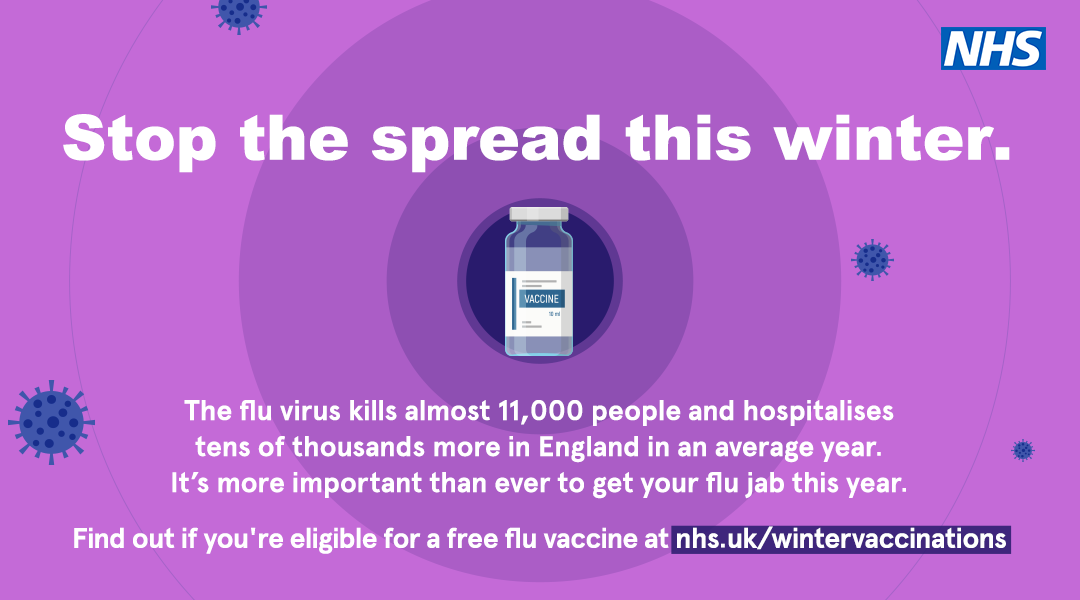Seasonal Flu
Flu is caused by a group of different group of viruses and symptoms tend to be more severe and last longer than the common cold. You can catch flu all year round, but it is especially common in winter, which is why it is also known as ‘seasonal flu’.
Seasonal Flu Virus
Flu is a highly infectious and common viral illness that is spread by coughs and sneezes. It is not the same as the common cold. Flu is caused by a group of different group of viruses and symptoms tend to be more severe and last longer. You can catch flu all year round, but it is especially common in winter, which is why it is also known as ‘seasonal flu’.

Staying Well
Flu symptoms
Flu causes a sudden high temperature, headache and general aches and pains, tiredness and a sore throat. You can also lose your appetite, feel nauseous ad have a cough. Symptoms peak after two to three days and you should begin to feel much better after a week or so, although you may feel tired for much longer.
Flu will often get better on its own but it can make some people seriously ill, so it’s important to get the flu vaccine if you’re advised to.
Flu vaccine
Find out more about the flu vaccination on our vaccination pages.
Flu vaccination is important because:
- if you get flu and COVID-19 at the same time, research shows you’re more likely to be seriously ill
- getting vaccinated against flu and COVID-19 will provide protection for you and those around you for both these serious illnesses
If you’ve had COVID-19, it’s safe to have the flu vaccine. It will still be effective at helping to prevent flu.
People who should have the flu jab
The injected flu vaccine is offered free of charge on the NHS to people who are at risk. This is to ensure they are protected against catching flu and developing serious complications.
For the latest list of who is eligible, please visit the NHS website.
Flu vaccine for children
Children aged two, three and four years can have a nasal spray vaccination from their GP; while school children in years 1, 2 and 3 will be invited by the school health nursing teams to get the nasal spray vaccination at school. Help protect them from flu with one simple nasal spray. It is free fast and painless. Do not put it off. Take up the offer from your GP as soon as you can.
Flu can be horrible for little children and if they get it, they can easily spread it around the whole family. Find out more on the NHS website.
Flu jab for health and social care workers
Outbreaks of flu can occur in health and social care settings, and, because flu is so contagious, staff, patients and residents are all at risk of infection.
If you are a front-line health and social care worker, you are eligible for an NHS flu jab to protect yourself, your colleagues and other members of the community.
It is your employer’s responsibility to arrange vaccination for you. So, if you are an NHS-employed front-line healthcare worker, the NHS will pay for your vaccination. If you are a social care worker, your employer – for example, your local authority – will pay for vaccination. In the case of health and social care workers employed by private companies; those companies will arrange and pay for the vaccinations.
Where can I get my flu jab?
You can have the NHS flu vaccine at:
- your GP surgery – they will contact you to book an appointment
- a pharmacy offering the service
- your midwifery service if you’re pregnant
- a hospital appointment
If you do not have your flu vaccine at your GP surgery, you do not have to tell the surgery. This will be done for you.
Find your nearest pharmacy offering the free NHS flu vaccine


